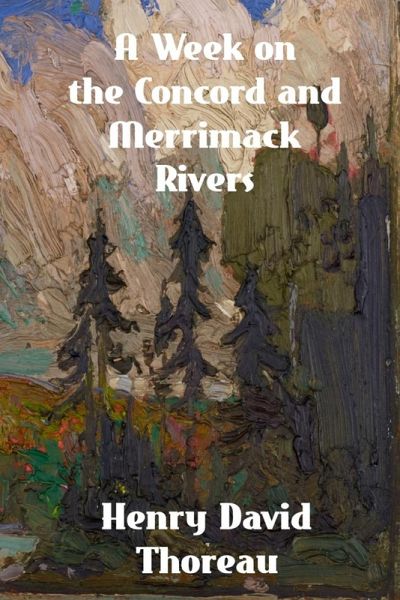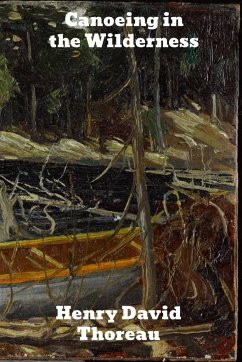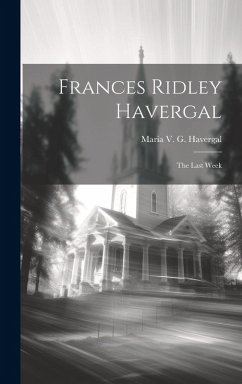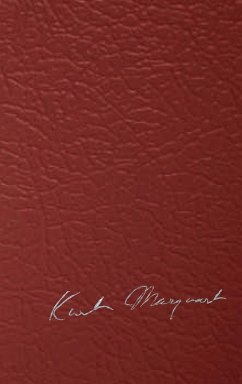
A Week on the Concord and Merrimack Rivers
Versandkostenfrei!
Versandfertig in 1-2 Wochen
18,99 €
inkl. MwSt.

PAYBACK Punkte
9 °P sammeln!
A Week on the Concord and Merrimack Rivers (1849) is a book by Henry David Thoreau (1817-1862). It is ostensibly the narrative of a boat trip from Concord, Massachusetts to Concord, New Hampshire, and back, that Thoreau took with his brother John in 1839. John died of tetanus in 1842 and Thoreau wrote the book, in part, as a tribute to his memory. The book's first draft was completed while Thoreau was living at Walden Pond (1845-47). He was unable to find a publisher, however, and therefore had it published at his own expense. Few copies sold and he was left with several hundred extras and wen...
A Week on the Concord and Merrimack Rivers (1849) is a book by Henry David Thoreau (1817-1862). It is ostensibly the narrative of a boat trip from Concord, Massachusetts to Concord, New Hampshire, and back, that Thoreau took with his brother John in 1839. John died of tetanus in 1842 and Thoreau wrote the book, in part, as a tribute to his memory. The book's first draft was completed while Thoreau was living at Walden Pond (1845-47). He was unable to find a publisher, however, and therefore had it published at his own expense. Few copies sold and he was left with several hundred extras and went into debt. A slightly revised version of A Week, based on corrections Thoreau had made himself, was published in 1868, six years after his death. While the book may appear to be a travel journal, broken up into chapters for each day, this is deceptive. The actual trip took two weeks and while given passages are a literal description of the journey - from Concord, Massachusetts, down the Concord River to the Middlesex Canal, to the Merrimack River, up to Concord, New Hampshire, and back - much of the text is in the form of digressions by the Harvard-educated author on diverse topics such as religion, poetry, and history. Thoreau relates these topics to his own life experiences, often in the context of the rapid changes taking place in his native New England during the Industrial Revolution, changes that Thoreau often laments.














